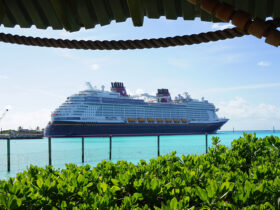Although many travel issues remain unclear right now, one is obvious: Taking a family on a 2020 trip will cost some real money—money you don’t want to lose if your plans don’t work out. Whether it’s for a summer 2020 trip or a vacation this fall or winter, it will be important to keep your prepaid cash outlays as small as you can. The reason is simple: Once an airline, cruise line, hotel, or tour operator has your money, you’ll have a tough time getting it back, no matter what—even when it says “no cancellation fee,” and even when a refund is required by law.
Instead, if your supplier cancels, the initial, and maybe only, offer you will likely get is a credit or voucher toward a future trip. Some such credits are flexible, even generous: Two-year validity, transferability, percentage value bonus, cash back is you don’t use it, and such. Others are stingy: A year or less of validity, no transferability, no bonus, and no residual cash value. If you cancel before the supplier does, you probably get even less. And even travel insurance isn’t likely, in tort law language, “to make you whole.”
Avoiding long-term prepayments is fairly easy:
- Although the “ideal” time to buy air tickets is generally a couple of months in advance, studies of fare trends show that the rise from low to high prices doesn’t really start to get steep until two to three weeks before your flight. True last-minute fares will likely remain high, so you can’t risk waiting to buy tickets until the day before you want to leave. But by the time your departure is three weeks out, you’re probably close to 95 percent sure you’ll travel. This can be especially valuable if you’re considering a summer 2020 trip, as it’s still pretty unclear how feasible summer vacations that involve air travel will be.
- Cruise lines are fond of telling you that your best bet is to buy early, but the actual case has always been that you find the best deals a month or less before sailing. These days, you can probably wait until a week before sailing to book without risking overpayment. Waiting it out is also a good idea for river cruises, because that way you won’t be stuck with low- or high-water limitations and modifications. And low water is likely this summer on the Danube and Rhine.
- Waiting it out for summer family vacations also works for tour packages, for the same reasons.
- Although nonrefundable hotel rates are often less than “no cancellation fee” rates, the differences aren’t great. But avoid “no cancellation fee” rates that require prepayment: Instead, stick to the best risk-free “pay at the hotel” rate you can find.
With any arrangement that’s impacted by Covid-19 problems, trip-cancellation insurance (TCI) isn’t likely to be of much help. Almost all policies limit coverage to “unforeseen” events, and Covid-19 is anything but unforeseen.
You can’t eliminate all early payments. But keeping them as small as possible lessens the risk that you’ll be stuck with credit toward a future trip you may not want to take.
More from FamilyVacationist:
- The 12 Best National Park Lodges in the U.S.
- 11 Products to Keep Your Family Healthy on Vacation
- How to Clean an Airplane Seat (and Other Germy Surfaces)












